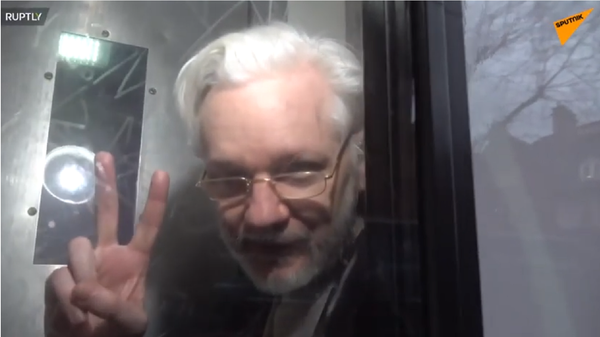Queen Elizabeth II won’t get involved in the Julian Assange case because she "remains non-political at all times" says a letter sent to activist Christopher Lonsdale. Last month, he wrote a letter in support of Assange asking Her Majesty to pardon the whistleblower. "The persecution of Mr Assange, if taken to its ultimate conclusion (his death, or incarceration for life), will lead to destruction of press freedom, and freedom of speech globally".
On 16 February, Lonsdale received the reply from Buckingham Palace, which said that the Queen would not intervene in the case. The activist then posted it on his Twitter account.
I have received a reply back from Buckingham Palace following my letter & petition to the Queen in support of #JulianAssange some weeks ago. The response says, basically, that the Queen cannot intervene in issues which are Political. This should be used in court. pic.twitter.com/GJVRiAXcTV
— Chris Lonsdale⏳ (@kungfu_mandarin) February 16, 2020
The letter was shared by Assange’s friends and supporters, who have long argued that US persecution and the case against the Australian, are politically motivated. Lonsdale and other supporters noted that the Palace’s letter should be used in court.
The founder of the whistleblowing site WikiLeaks has been jailed in H.M. Prison Belmarsh since last April on charges of breaching bail. His incarceration stems from previous accusations made by US authorities in 2010, who claim that Assange violated the Espionage Act. In 2010, WikiLeaks published classified US documents, which detailed potential war crimes committed by US forces during a military campaign in Afghanistan and the Iraq War. In particular, the leaked papers revealed murder, torture of civilians, and other human rights abuses.
That same year Swedish authorities issued an international arrest warrant for the journalist on charges of rape and sexual assault. Assange dismissed the accusations, saying they were a pretext to extradite him to the United States. In 2012, he sought asylum at the Ecuadorian Embassy in London due to fears of political persecution. The 48-year-old lived in the embassy up until April 2019 when Ecuadorian authorities accused him of violating the terms of political asylum.
Nils Melzer, UN Rapporteur on Torture, who visited the Australian in prison, said the journalist showed symptoms of “prolonged exposure to psychological torture and called on UK authorities to release Assange".
"In 20 years of work with victims of war, violence and political persecution I have never seen a group of democratic States ganging up to deliberately isolate, demonize and abuse a single individual for such a long time and with so little regard for human dignity and the rule of law", Melzer said. “The collective persecution of Julian Assange must end here and now!", Nils Melzer stated.


